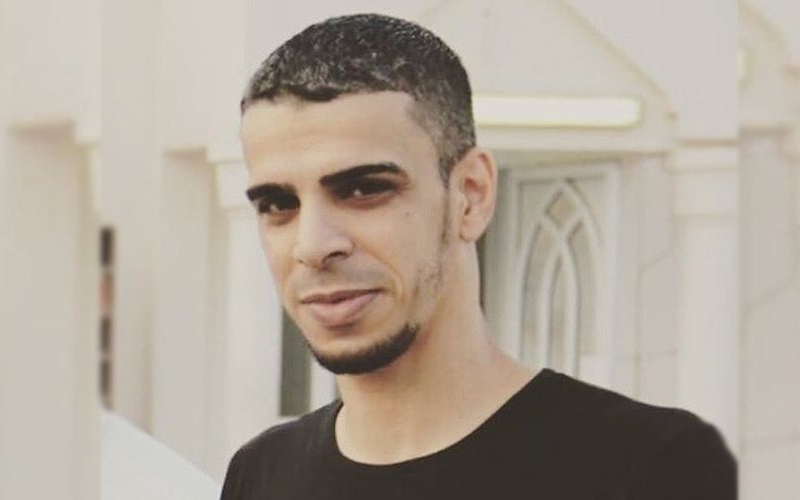Ali Ateya Ali was employed in a mosque before his arbitrary arrest this year. He was beaten by Special Security Force Command (SSFC) officers, and has been denied access to legal counsel during his trial. He also suffers from a medical condition and is not receiving adequate care while detained.
On 14 August 2018, while present in Sitra’s Main Street to participate in a peaceful march in solidarity with Bahraini prisoners, SSFC forces in official clothing arbitrarily arrested Ali. The officers beat him on his back and neck and took him to the Sitra Police Station, where Minister of Interior (MoI) officers interrogated Ali for approximately five hours. Ali confessed that he was present in Sitra to participate in the march but was prevented from doing so when the riot police forces arrested and beat him. He asked to be taken to the hospital to examine his wounds resulting from the beating, but the officers refused. Ali suffers from hydrocephalus – a condition in which there is an accumulative cerebrospinal fluid within the brain, which typically causes increased pressure inside the skull. Despite this, officers did not give him his medication until 11 days after his arrest, on 25 August 2018.
Until 15 August 2018, no one knew about Ali’s whereabouts until his lawyer went to the Office of Public Prosecution (OPP) to see if Ali was present and confirmed that he was at the OPP for investigation. Ali’s lawyer was not informed about the investigation in order to prepare for it, nor was she allowed to attend. On 15 August 2018, after Ali confirmed his confession, he was transferred to Dry Dock Detention Center pending trial.
On 26 August 2018, Ali was transferred to the prison clinic due to suffering from a continuous and severe headache and pain from the beating. He was diagnosed again with hydrocephalus, for which he was prescribed a medicine different from the one his private doctor had previously prescribed him. Ali refused to take this medicine and requested to be taken to the Salmaniya Medical Hospital in order to see his personal doctor specialized in his health condition. So far there has been no response to his request.
On 28 August 2018, Ali was taken to the Department of Criminal Evidence building (affiliated with the MoI) to be presented to the forensic doctor to examine his wounds from the beating he was subjected to during his arrest. It was shown that there were traces of beatings, and he was told that the issue is under investigation. However, no outcomes have been disclosed to Ali.
On 25 September 2018, without being able to prepare or to meet his lawyer, Ali attended his trial, where a count of assaulting a security officer was added to his charges. Ali’s case was referred to the High Criminal Court and his verdict is expected on 29 November 2018. Ali remains at Dry Dock Detention Center.
On 30 October 2018, he was transferred to the clinic at Dry Dock when he fainted due to the prison authorities’ delay in giving him his medicine. Since then, he has started receiving his medication regularly.
Bahrain’s ill treatment and ongoing unfair trial of Ali are in violation of his fundamental human rights and Bahrain’s international and domestic obligations. In this case, as in others, the Bahraini government did not fulfill its obligations under the international treaties to which it is party, including the International Covenant on Civil and Political Rights and the International Covenant on Economic, Social and Cultural Rights. In light of this record, ADHRB calls for Ali’s release with redress for past suffering and, if serious criminal charges can be sustained against him, for a fair trial conducted under universally agreed juridical standards and open to international monitoring and evaluation.





